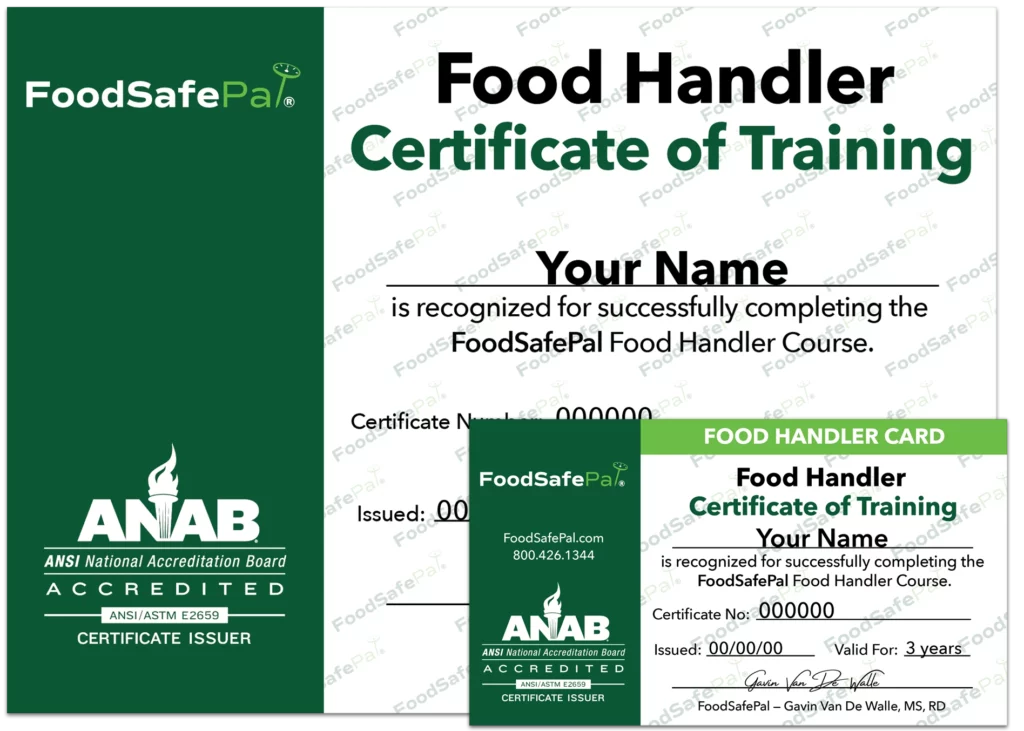Do You Need a Food Handlers Card to Be a Cashier?
A food handlers card — otherwise known as a food handlers certificate or permit — proves that you have passed a course on food safety.
Food handler courses discuss how to identify and prevent the food hazards that lead to foodborne illnesses or food poisoning.
To prevent foodborne illnesses, many places require a food handlers card to work at a food establishment, such as a restaurant, market, hotel, or convenience store.
However, you may wonder whether this same rule applies to cashiers.
This article explains whether you need a food handlers card to be a cashier, and if so, how you can earn one.

Do you need a food handler card as a cashier?
A food handler is generally defined as a foodservice employee who works with unpackaged food, food equipment or utensils, or food-contact surfaces.
Like hostesses, cashiers don’t fit this definition since their primary responsibility is to handle customer payments or enter customer orders.
However, many managers prefer to cross-train cashiers — especially at fast food restaurants — so they can help out in the kitchen to cover the absence of a coworker or to assist during busier times.
For this reason, you may need to earn your food handlers card as a cashier if where you live or work requires it.
States that require a food handler card include:
- Alaska
- California
- Hawaii
- Illinois
- New Mexico
- Oregon
- South Carolina
- Texas
- Utah
- Washington
- West Virginia
Most of these states require that you earn your food handlers card within 30 days of employment.
If you don’t live in one of the states that require a food handlers card, the county in which you live still might.
For example, Arizona, New York, North Dakota, Missouri, and Kansas, among many others, don’t have state laws requiring a food handler card, but many of their counties do.
Additionally, employers can require a food handlers card of its employees, even if state or local laws don’t require it.
Summary
While cashiers don’t meet the definition of a food handler, they’re usually cross-trained to work other positions in the kitchen. For this reason, you may be required to earn your food handler card as a cashier depending on where you live and work.
How to get a food handler card as a cashier
You can easily earn your food handler card as a cashier online in under two hours.
To get started, enroll with a food handler training that your health department or employer recognizes and deems valid.
Most places only accept ANSI-National Accreditation Board (ANAB)-accredited food handler training courses, like FoodSafePal’s.
Earn or Renew Your Food Handler Card in 90 Minutes
Trusted by thousands. The fastest, most reliable way to meet your health department’s requirements.

After enrolling, you can start the course right away.
Learn about important food safety topics, like:
- how food hazards occur and spread
- handwashing and good personal hygiene
- cross-contamination prevention
- cleaning and sanitizing procedures
- food allergies and cross-contact prevention
Pay close attention as you progress through the course since you will have to pass a multiple-choice test to earn your food handler card.
FoodSafePal’s Food Handler test consists of 40 multiple-choice questions, and you need to answer at least 28 (70%) correctly to pass.
Once you earn your food handlers card, it belongs to you and not your employer, meaning you can use it to work at other food establishments within your jurisdiction or state.
For this reason, your employer isn’t required to pay for your food handlers card — unless you live in California — since it belongs to you and not them, but many places still cover the costs.
Your food handler card will generally be good for three years, but some places like Texas require that you renew it sooner.
Renewing your food handler card every two or three years keeps you current on important food safety principles.
Summary
To earn your food handler card as a cashier, enroll with a valid online food handler training provider like FoodSafePal, complete the course, and pass the test.
The bottom line
Cashiers don’t meet the definition of a food handler since they don’t handle food or food-contact surfaces.
However, as a cashier, you may still need to earn a food handler card depending on where you live and work if your manager cross-trains you to work other positions in the kitchen — a common practice among many restaurants.
To earn your food handler card as a cashier, enroll with a valid online training provider like FoodSafePal, complete the training, and pass the test.
Earn or Renew Your Food Handler Card in 90 Minutes
Trusted by thousands. The fastest, most reliable way to meet your health department’s requirements.

Your food handler card will be good for three years, but you may need to renew it more often.






